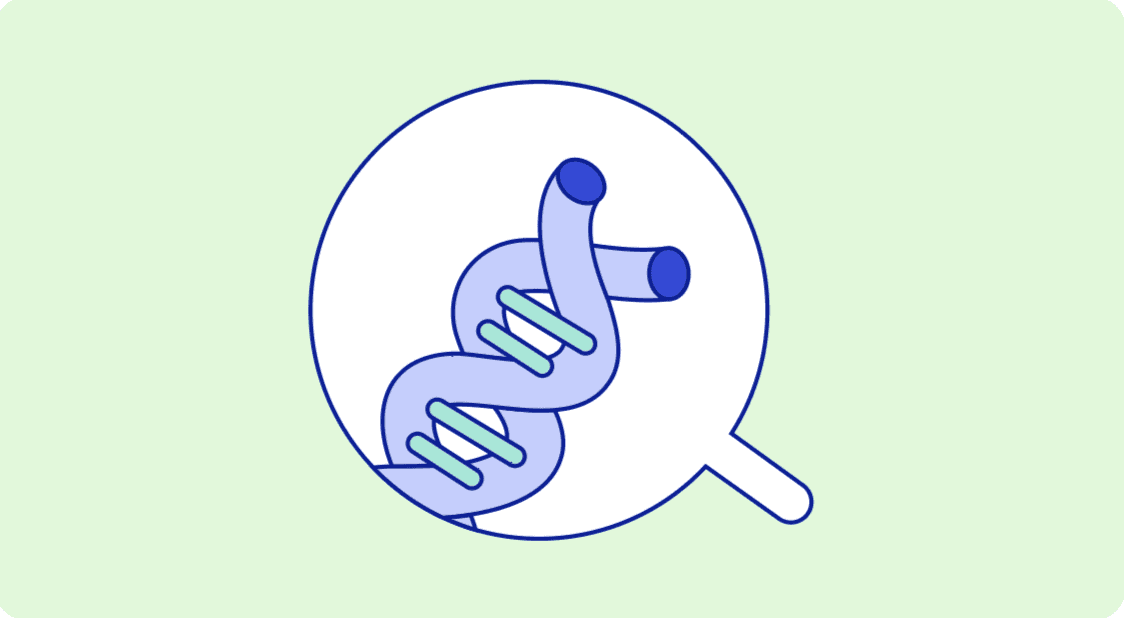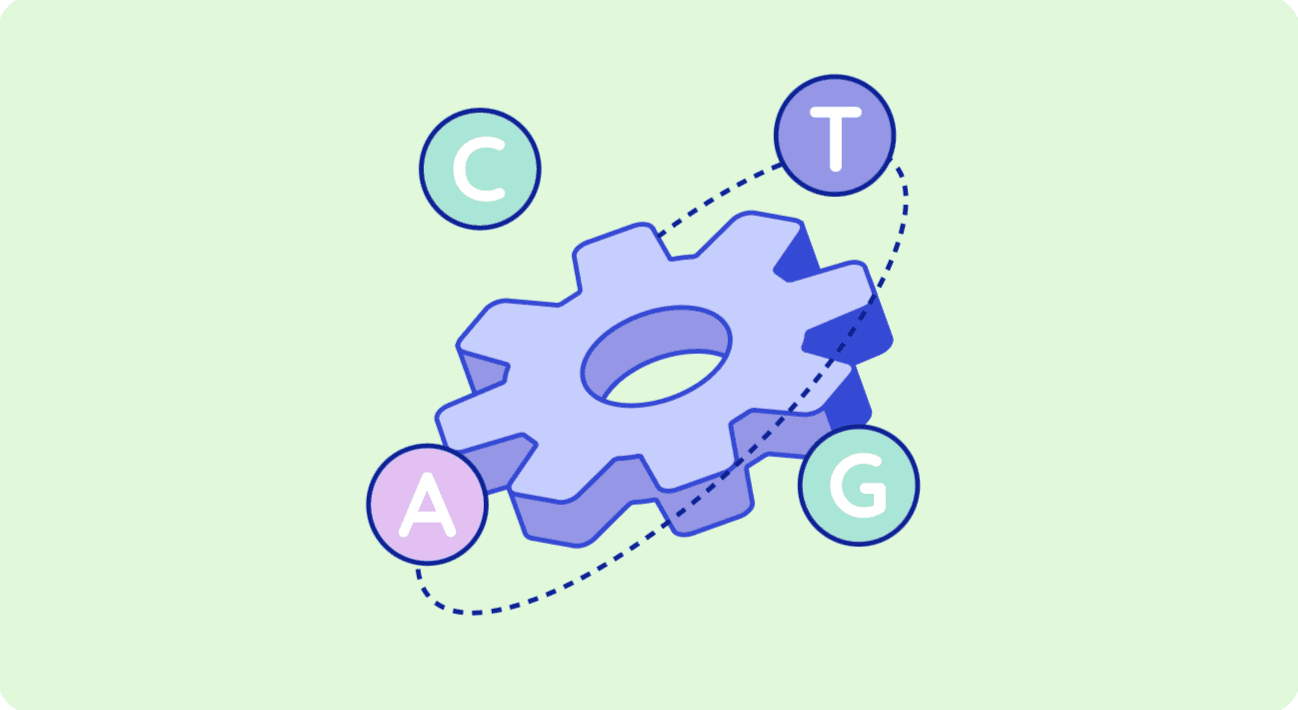01
Insights on high-effect variants
Nucleus Premium members may receive reports showing high-effect variants that significantly increase the risk for certain diseases.
If you get a result like this, it’s imperative you talk to your primary healthcare provider or a board-certified genetic counselor about next steps. This can include actions you can take to help lower your risk, as well as possible implications the result has for your family.
02
More than just your DNA
Nucleus combines your DNA with other key information — like your BMI, sex at birth, or age — to calculate your absolute disease risk. That means your risk estimates are always shaped by both genetic and non-genetic factors. This is a key feature of Nucleus.

03
Genetics plays a stronger role in influencing risk for certain diseases and traits
Certain diseases and traits are largely driven by genetics, while others are driven more by environment and lifestyle. Your risk assessment for common diseases such as breast cancer, coronary artery disease, age-related macular degeneration, and others will be strongly influenced by your genetics.
A number of other diseases — such as depression and gastric cancer — are better understood based on the impact of non-genetic factors. Therefore your risk assessments for such diseases are largely shaped by relevant non-genetic factors. Your reports will always indicate whether genetics plays a limited or larger role in influencing your disease risk and trait assessments.
04
Genetics and ancestry
People of all ancestries can get meaningful and accurate results from Nucleus. We always compare your risk to people with the genetic ancestry that most closely matches yours — ensuring your results are appropriately contextualized.
Still, larger and more diverse data means better analyses for people of non-European ancestries — especially for people of African, South Asian, East Asian, and mixed ethnicities. We are constantly looking to improve the results we deliver for people of all ancestries and ethnicities.

05
Not a diagnosis
Your results are an estimate of your risk for a disease. They do not and cannot tell you if you have or will definitely develop a disease. In other words, your results are not a diagnosis — even if you have a high-effect variant.
However, with the help of your primary healthcare provider or a genetic counselor, your results can be used to take the appropriate next steps, including preventative health measures to help lower your disease risk.
06
Always improving
Researchers are constantly uncovering new DNA differences that can affect your risk of developing a disease or chances of having a trait. We always seek to use the latest scientific findings and research to update your reports and improve your analyses.
Keep exploring






